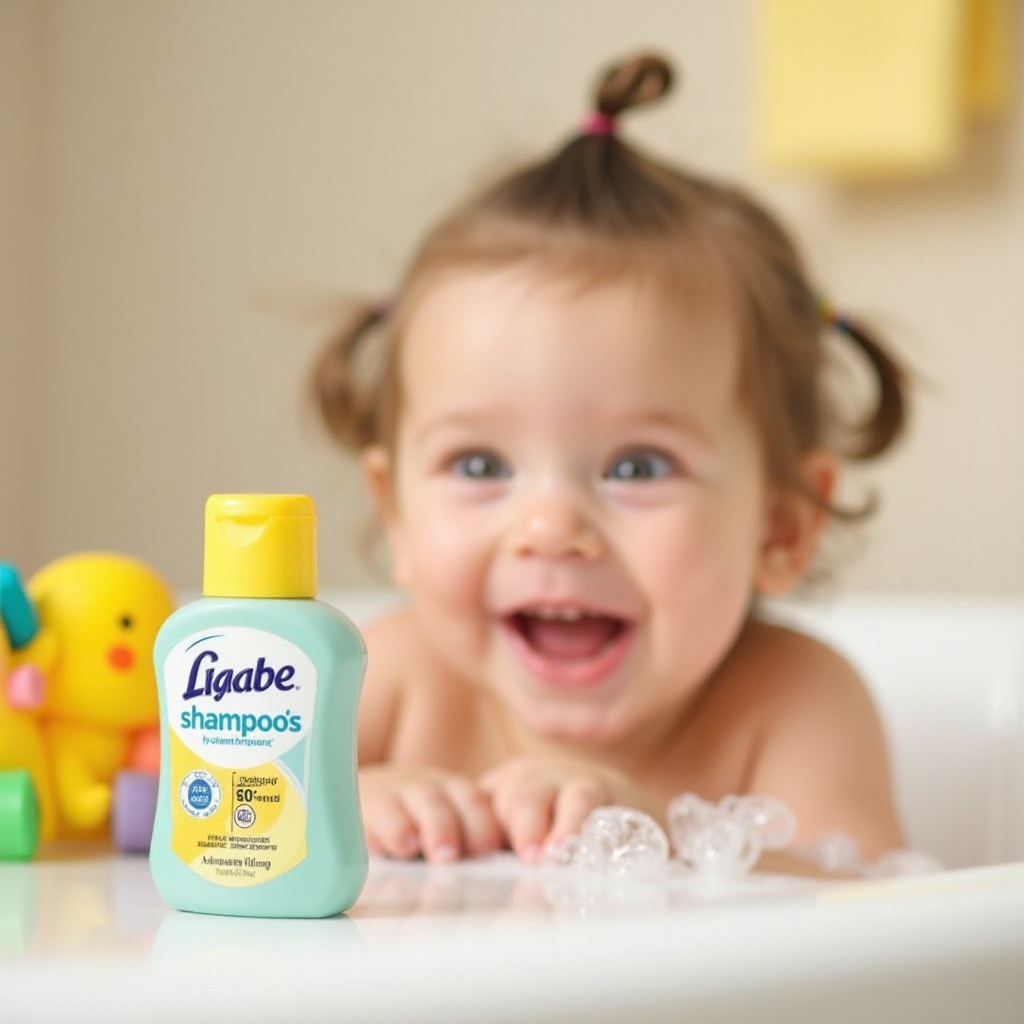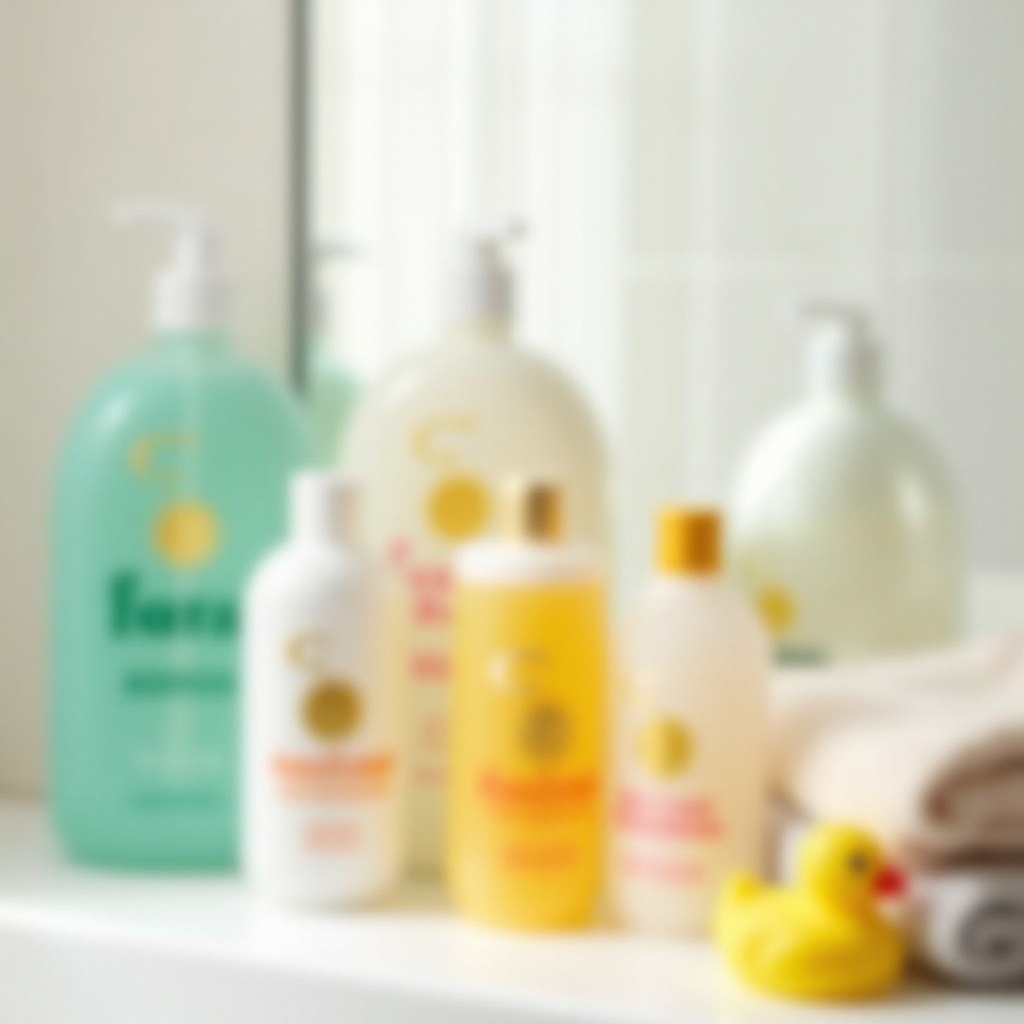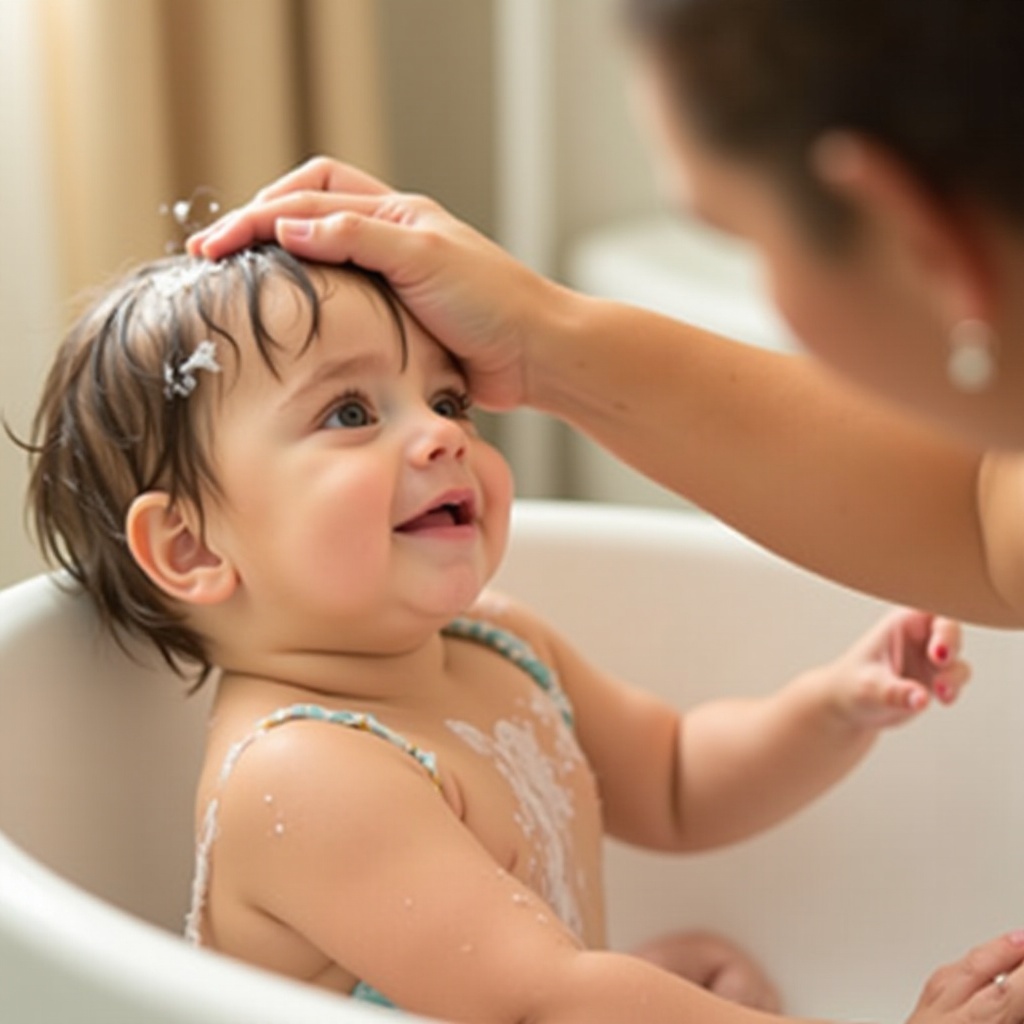Introduction
Choosing the best toddler shampoo can be daunting with the myriad of options available. The right product should cater to the unique needs of toddler hair and scalp, ensuring they remain healthy and free from irritation. This blog delves into what makes a toddler shampoo exceptional, key ingredients to look for and avoid, expert recommendations for 2024, and practical tips for using these products effectively.

Understanding Toddler Hair and Scalp Needs
Toddler hair and scalp are significantly different from those of adults. By nature, toddlers have thinner hair shafts and more delicate scalps. This means their hair is more prone to tangling and their scalp is more susceptible to irritation, requiring gentle care and mild formulations. Adult shampoos, often containing stronger cleaning agents, can strip essential oils from toddler hair, leading to dryness and brittleness.
Common Toddler Hair Issues
Common issues that toddlers face include dry scalp, cradle cap, and tangled hair. Dry scalp, often confused with dandruff, leads to flaky and itchy skin. Cradle cap is a type of seborrheic dermatitis that causes crusty and oily patches on the baby’s scalp. Tangled hair results from the fine, silky nature of toddler hair, which can easily knot without proper care. These issues necessitate the use of specially formulated shampoos designed to soothe and protect.
Top Ingredients to Look for in Toddler Shampoos
Understanding the needs of your toddler’s hair prepares you to choose the best possible shampoo. The next step is knowing what ingredients to look for that can help you maintain your child’s hair in top condition.
Natural Oils
Natural oils such as coconut, jojoba, and argan oil gently cleanse and moisturize the scalp and hair, preventing dryness and flakiness. These oils replenish essential nutrients and create a protective barrier on the scalp, keeping it hydrated and soft.
Hypoallergenic Components
Hypoallergenic components are essential for reducing the risk of allergic reactions. Products labeled hypoallergenic contain fewer common allergens and irritants, making them safer for your child’s sensitive skin.
Tear-Free Formulas
Tear-free formulas are specifically created to avoid stinging the eyes, making bath time more pleasant and less intimidating for toddlers. These gentle, soap-free formulas cleanse effectively without causing discomfort or tears.

Ingredients to Avoid in Toddler Shampoos
Just as important as knowing what to include is understanding what to avoid in toddler shampoos to protect delicate hair and scalp from harm.
Sulfates
Sulfates are harsh cleansing agents that can strip natural oils from the scalp and hair, causing dryness and irritation. They produce a rich lather, which is desirable in adult shampoos but unnecessary and potentially harmful for toddlers.
Parabens
Parabens are used as preservatives to extend the shelf-life of products. However, they have been linked to skin irritation and hormonal disruptions. Choosing paraben-free shampoos minimizes these risks for toddlers.
Artificial Fragrances
While pleasant-smelling shampoos may appeal to parents, artificial fragrances can cause allergic reactions and irritate sensitive skin. Opt for fragrance-free options or those using natural scents derived from essential oils.
Expert Recommendations: Best Toddler Shampoos of 2024
Armed with this knowledge, let’s look at some top-rated toddler shampoos that experts recommend for 2024:
Brand Name 1: Key Features, Pros, and Cons
Key Features:
– Natural ingredients
– Hypoallergenic
– Tear-free formula
Pros:
– Gentle on sensitive skin
– Moisturizes and hydrates
– Leaves hair soft and manageable
Cons:
– High price point
Brand Name 2: Key Features, Pros, and Cons
Key Features:
– Organic components
– Paraben and sulfate-free
– Mild scent
Pros:
– Eco-friendly packaging
– Effective for cradle cap
– Nourishes hair and scalp
Cons:
– Limited availability
Brand Name 3: Key Features, Pros, and Cons
Key Features:
– Plant-based formula
– Dermatologist tested
– Suitable for daily use
Pros:
– Strengthens hair
– Safe for delicate skin
– Doesn’t cause tears during bath time
Cons:
– May not foam as much
Brand Name 4: Key Features, Pros, and Cons
Key Features:
– Vitamin-enriched ingredients
– Free from artificial dyes and fragrances
– Pediatrician approved
Pros:
– Enhances hair shine
– Reduces dryness and itching
– Easily rinsed out
Cons:
– Slightly higher pH balance
Brand Name 5: Key Features, Pros, and Cons
Key Features:
– Infused with aloe vera
– Hypoallergenic and pH-balanced
– Soap-free
Pros:
– Soothes and conditions the scalp
– Ideal for sensitive skin
– Budget-friendly option
Cons:
– Requires more quantity for effective cleaning
How to Properly Use Toddler Shampoo
Knowing the best products is just one part of the equation. Proper application maximizes the benefits for your toddler’s sensitive hair and scalp.
Step-by-Step Guide to Washing Toddler Hair
- Wet the hair with lukewarm water to open the hair cuticles and make cleansing more effective.
- Apply a small amount of shampoo to your palm and gently massage it into the scalp using your fingertips, not nails.
- Rinse thoroughly with lukewarm water to remove all traces of shampoo.
- Pat the hair dry with a soft towel, avoiding vigorous rubbing which can tangle hair further.
Tips for Reducing Bath Time Anxiety
- Engage your toddler with toys or by singing songs to keep them distracted.
- Ensure the water temperature is just right – not too hot, not too cold.
- Use a cup or a handheld shower to carefully rinse shampoo, avoiding getting water in their face.
- Keep bath time as quick and calm as possible to avoid overstimulating or tiring out your child.

Conclusion
Selecting the best toddler shampoo involves understanding the unique needs of toddler hair and scalp and choosing products free from harsh chemicals. With expert recommendations and the right techniques, bath time can be a joyful experience for both you and your child.
Frequently Asked Questions
What should I look for in a toddler shampoo?
Look for natural, gentle ingredients like natural oils, hypoallergenic properties, and tear-free formulas. Avoid sulfates, parabens, and artificial fragrances.
Can I use adult shampoo on my toddler?
It’s best to avoid using adult shampoo on toddlers as they often contain harsher ingredients not suitable for delicate toddler hair and scalp.
How often should I shampoo my toddler’s hair?
Generally, shampooing 2-3 times a week is sufficient. Too frequent washing can strip away natural oils, leading to dryness and irritation.
